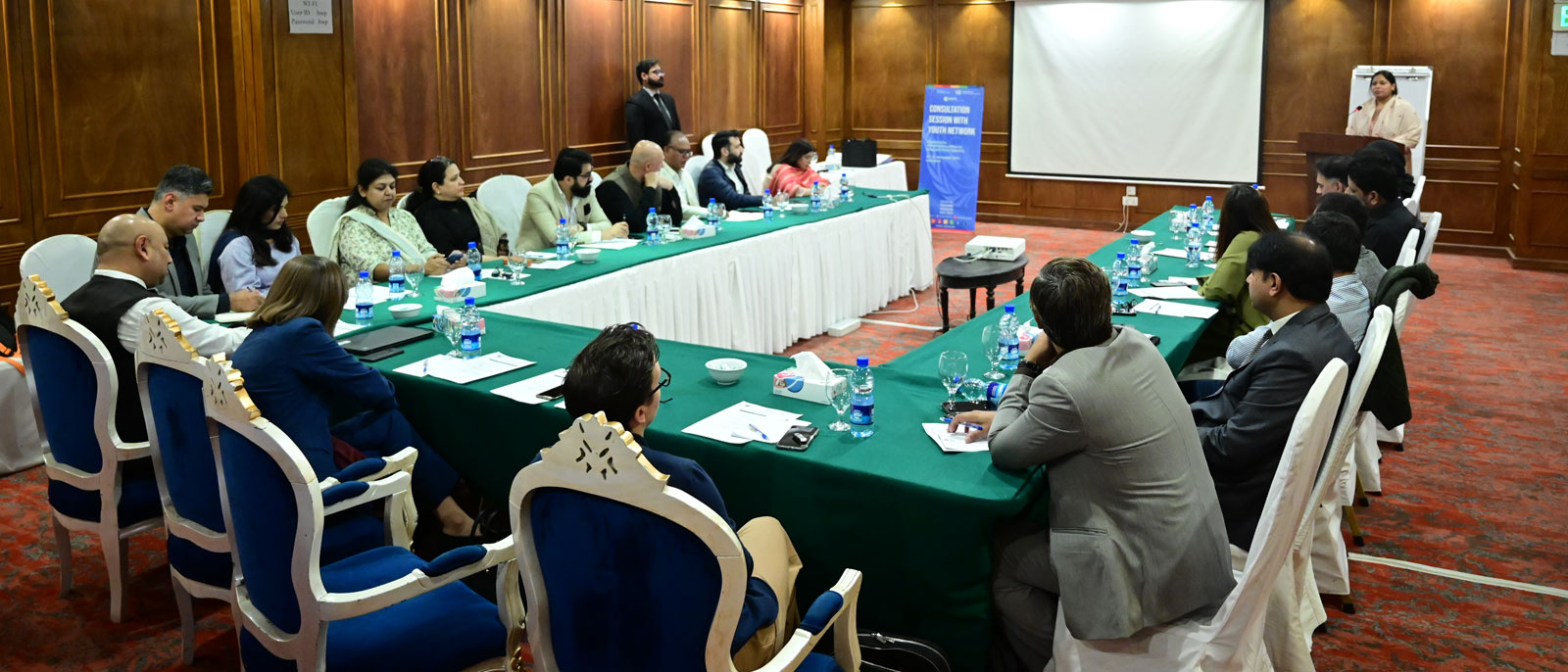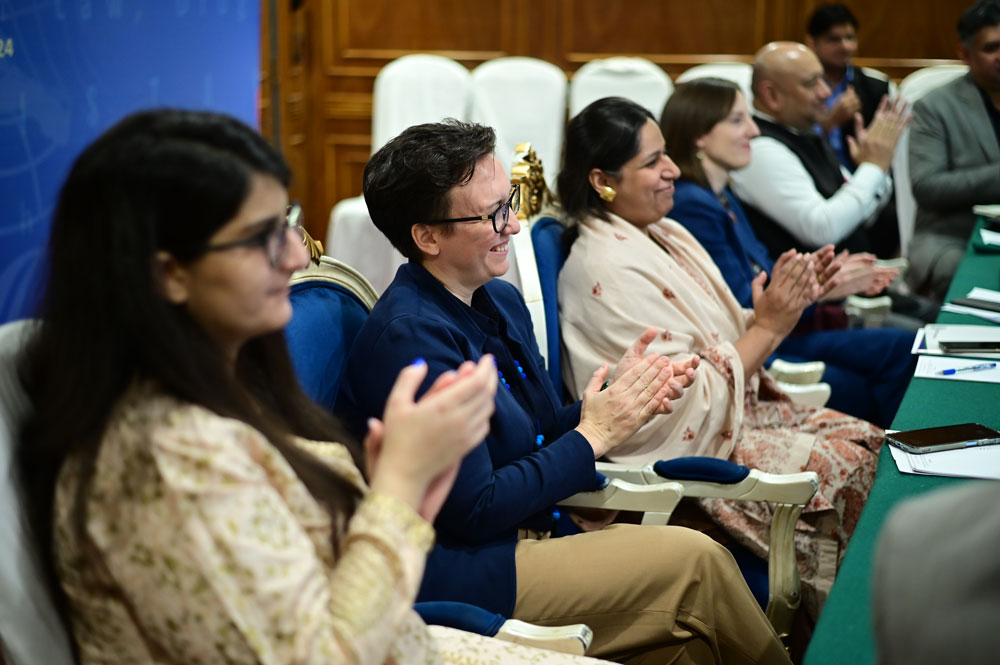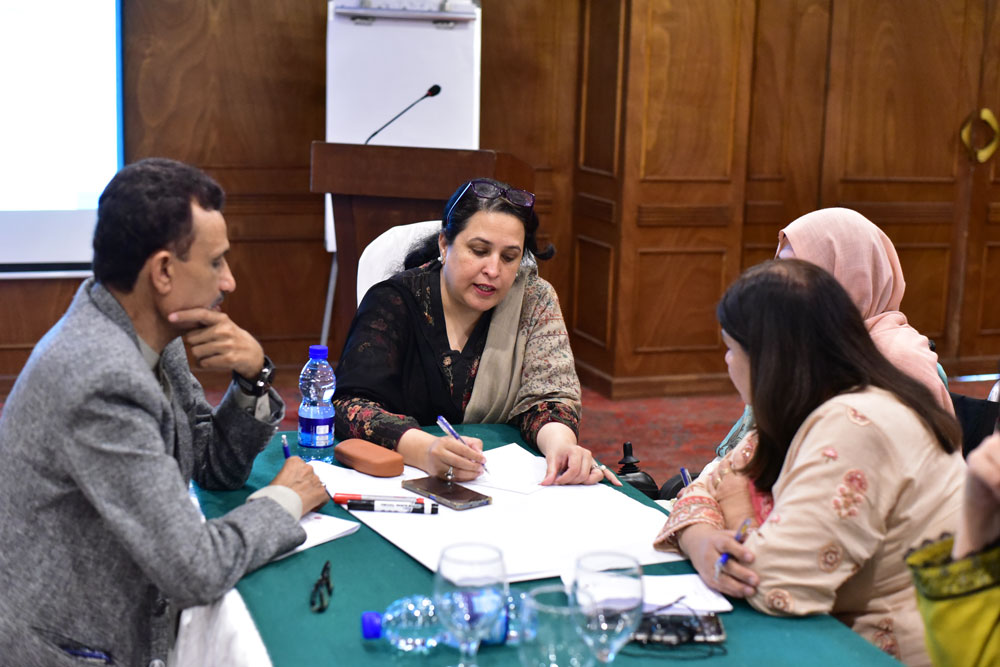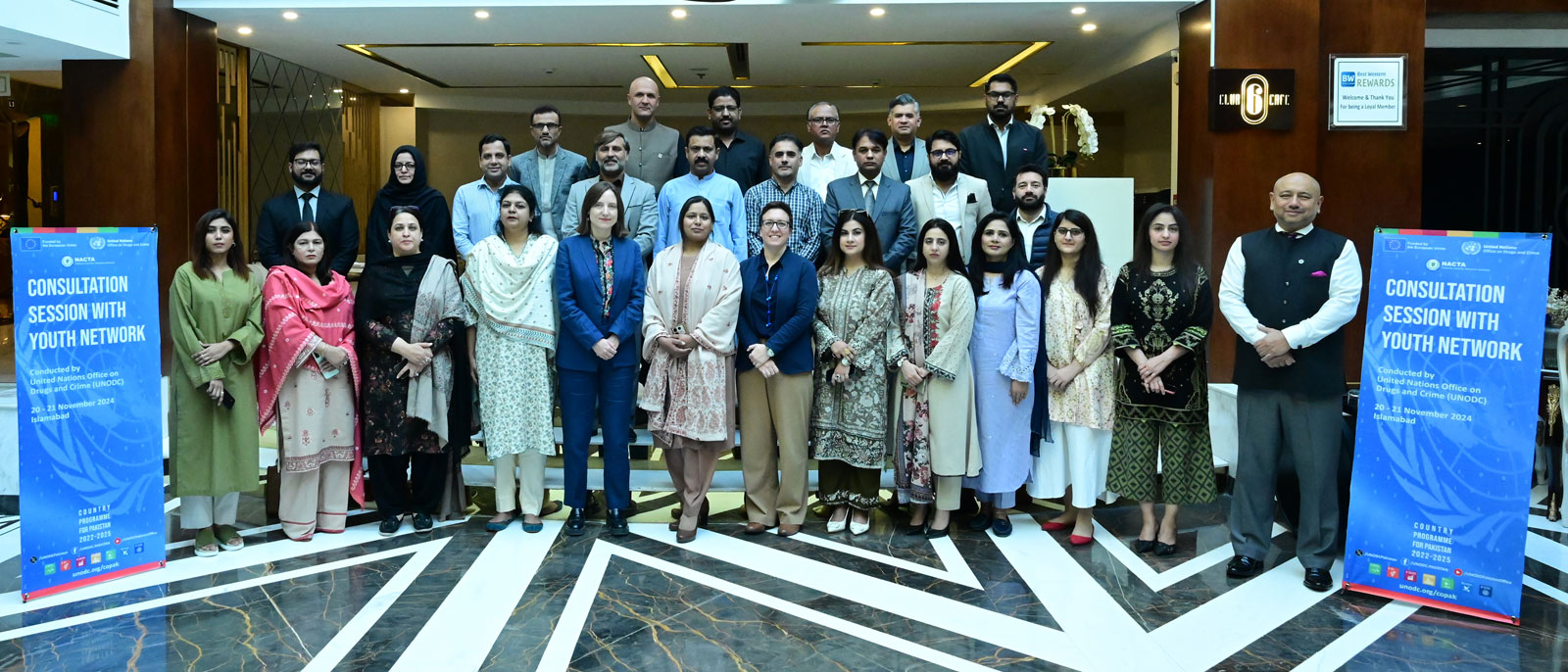
18 - 21 November 2024, Islamabad – The United Nations Office on Drugs and Crime (UNODC), in partnership with the National Counter Terrorism Authority (NACTA) and funded by the European Union (EU), organized a four-day consultative workshop in Islamabad from 18-21 November 2024. This workshop addressed the pressing issue of youth affected by terrorism, aiming to shed light on their vulnerabilities, the challenges they faced, and the support they needed.
This significant event brought together more than 20 policymakers and 24 civil society organisations (CSOs) that focus on youth engagement across Pakistan. Participants actively engaged in meaningful dialogues, collaborative working group sessions, and interactive presentations. These activities were designed to provide a comprehensive understanding of the complex realities faced by youth victims of terrorism and to encourage the development of actionable, impactful solutions. Several key members of networks established under this project were engaged in the workshop. The project has already established four networks each focusing on youth, communications narrative, policy building and victim support.
The workshop highlighted the physical, emotional, and social issues experienced by youth affected by terrorism. They often struggle with reintegration into society and face significant stigmatization. UNODC’s commitment to fostering resilience and providing necessary protections underscored the agency’s dedication to this vulnerable demographic. By convening CSO representatives and policymakers, UNODC sought to build a strong, supportive network aimed at an inclusive, youth-centric approach to policy-making. The event emphasised the importance of amplifying youth voices to ensure that their needs and experiences are integrated into future support strategies.
The workshop began with a comprehensive exploration of international best practices and research studies. UNODC presented critical findings from their latest study on this subject, offering evidence-based insights. This was followed by an extensive analysis of relevant international and national legal frameworks. The session also featured compelling testimonials from youth-led organizations and policymakers across all four provinces of Pakistan, which added a localised perspective to the discussion.


